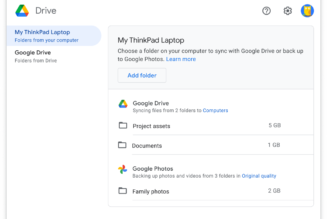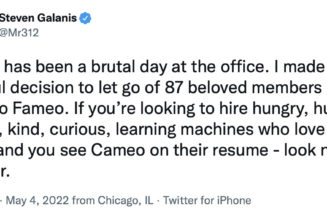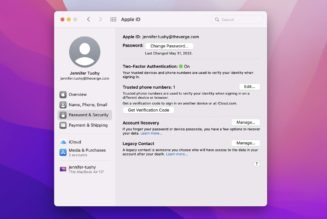/cdn.vox-cdn.com/uploads/chorus_asset/file/23935561/acastro_STK103__04.jpg)
District of Columbia Attorney General Karl Racine has sued Amazon for using drivers’ tips to pay their standard wages, attempting to exact a punishment that federal consumer protection agencies couldn’t.
Amazon settled with the Federal Trade Commission last year after a lawsuit asserted it had withheld more than $60 million (or about one-third of total customer tips) from Amazon Flex drivers over the course of two and a half years. But while the FTC took that money to distribute back to drivers, it had no mechanism to issue greater penalties. “Amazon has thus far escaped any other consequences,” Racine’s complaint says. The new suit asks for a DC court to assess further financial damages, aiming to “hold Amazon to full account for its unlawful actions, and to send a clear message to employers not to divert tips for their own benefit.”
“Corporations should not be treated more leniently than people.”
Amazon Flex began operating in 2015, allowing people to sign up as drivers to deliver products from Amazon, Prime Now, Amazon Fresh, and Amazon Restaurants. From 2016 to 2019, it prompted customers to leave tips with the promise that “100 percent” of the money would be given to drivers. But this was only technically true — instead, news outlets revealed that it was using the money to subsidize the base payment that drivers were promised. In response to public outcry, it discontinued the policy in 2019.
Racine’s office alleges this violates DC’s Consumer Protection Procedures Act, which bars deceptive information about merchants’ goods and services — like, the complaint asserts, falsely representing its payment option as a tip. “When a worker is caught stealing from their employer, they face restitution and punishment,” the complaint says. “Corporations should not be treated more leniently than people: when a company is caught stealing from its workers, it is not enough for the company to repay the amount stolen.”
And Amazon isn’t the only tech company that has diverted tips to pay wages that workers had already been promised. The city of Chicago sued DoorDash last year in part for a similar tipping policy, which DoorDash discontinued in 2019.









